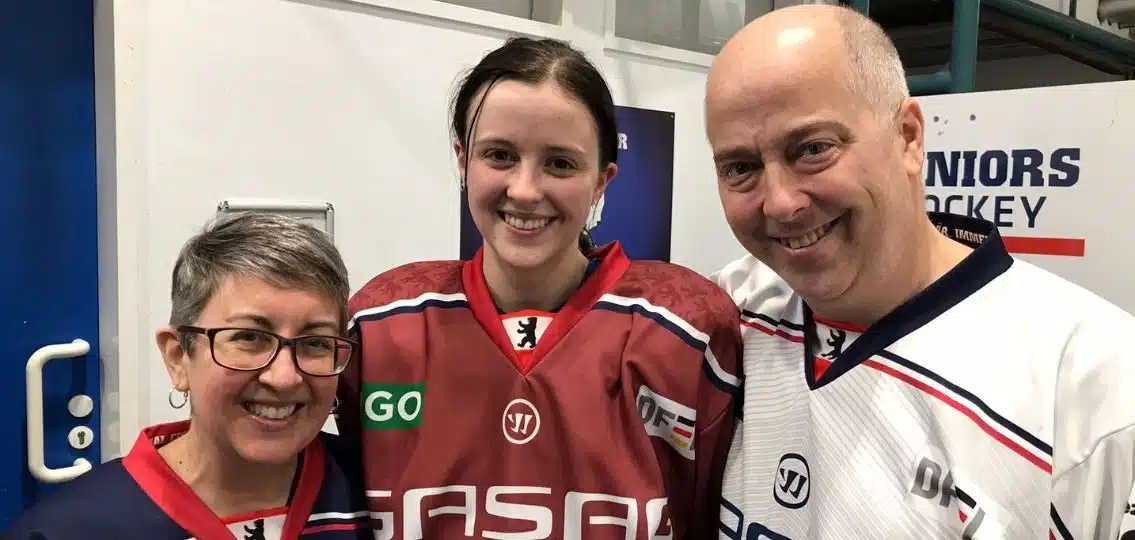When my mother-in-law stayed with us for 10 days, she wanted to see every one of our daughter Frida’s ice hockey practices and games, including an away game in a city about 100 miles from where we live.
Frida was thrilled to have so much of Granny Nanny’s attention, and my husband and I were thrilled as well. That is, until Granny Nanny started asking questions. She asked so many questions about the game, the rules, the uniforms and how she would know when Frida was on the ice that my husband and I quickly realized she had never watched an ice hockey game before.
Grandparents love to be involved in their grandchildren’s lives, so it makes sense they’d be cheering them on in sports, too. Here are some things I’ve learned about making these events a pleasant experience for everyone involved.
1. Make sure grandparents are physically and mentally prepared to attend the game.
Many sporting events take place outdoors or in venues where there is limited or very hard seating. Gymnasiums and ice rinks aren’t known for their cushioned seats, nor are soccer fields or volleyball courts. Consider bringing a seat cushion or portable chair to make things more comfortable.
Show up well in advance of game time so everyone can get settled in. We arrived with Granny Nanny an hour and a half before Frida’s away game started so we could see the team do warm-up exercises and get into their gear. We made sure to bring enough snacks and beverages because the snack bar wasn’t open that early in the day. We also made sure Granny’s phone was fully charged so she could take all the photos and videos she wanted.
2. If they’re not familiar with the sport, explain the basics of the game without getting too complicated.
At Granny Nanny’s first hockey game, we didn’t sling around a lot of jargon about three-on-ones and pulling the goalie, or the difference between a five-minute major penalty and a bench minor. Instead, we told her that the object of the game is to score the most goals by shooting the puck into the other team’s net. We kept it simple.
3. Let them know your child’s position and what that role contributes to the game.
Our daughter plays defense, so we explained to Granny Nanny that she would likely not see Frida score any goals. We told her that the point of defense on a hockey line is to prevent goals from being scored — and if no goals are scored when Frida is on the ice, that means it was a good shift for her. Knowing Frida’s role on the team helped Granny Nanny understand how to talk to Frida about the game afterwards.
4. Provide them with tips on how to spot their grandchild in action.
When a child is out on the field — or the court, or the ice, or whatever the playing surface is — it’s often hard to tell who’s who, especially if the players are wearing helmets and other heavy gear.
We told Granny Nanny that Frida would be one of the two players staying closest to our team’s goal and to look for player number 42 wearing a black helmet and a ponytail hanging down the back. (Frida was the only kid with a ponytail, so that made it easier.) But even with those clues, it was still sometimes difficult to find Frida, especially when the rink was large and our seats were far enough away to blur details. To make it easier for Granny Nanny, we made a point of telling her when Frida came on and off the ice.
These sorts of tips are important even for practices. When my own parents — Frida’s Grandma and Zedo — came to a practice game, the players weren’t wearing their game jerseys, so we provided other visual clues. They spotted Frida by her ponytail and the colors of her helmet, jersey, and socks and knew right away exactly who to film.
Even though we live in a different country than Frida’s grandparents, it warms my heart to know they’ve been able to connect with her in a deeper way through sports.




